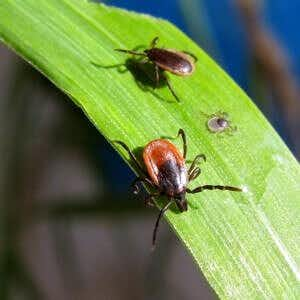
The Centers for Disease Control and Prevention (CDC) report that diseases carried by ticks and mosquitoes are becoming far more common. New data from 2004 to 2016 shows that such vector-borne diseases have more than tripled (Rosenberg et al, MMWR, online, May 1, 2018).
What Diseases Do Ticks and Mosquitoes Carry?
In 2004, the CDC noted over 27,000 cases of Lyme disease, Rocky Mountain spotted fever, and West Nile, dengue and Zika virus disease. Lyme disease and Rocky Mountain spotted fever are transmitted by ticks. West Nile, dengue, chikungunya and Zika viruses, on the other hand, are transmitted by mosquitoes. In 2016 the agency had received reports of more than 96,000 cases of these diseases.
Such official numbers do not represent the actual number of people who were infected. That’s because many people go undiagnosed and not all cases are reported. As many as 300,000 Americans get Lyme disease each year, according to estimates. However, only 36,429 cases were reported in 2016.
Where Are These Diseases Most Common?
Tick-borne disease are most common on the Atlantic and Pacific coasts. Mosquito-borne diseases are mostly found in tropical areas such as American Samoa, Puerto Rico and the US Virgin Islands. (If you would like to know which tick bit you, the CDC offers this ID picture.) As climate change progresses, however, both ticks and mosquitoes are expanding their range. The diseases they carry will come with them. New vector-borne diseases have also been discovered, such as Bourbon, Heartland and Powassan viruses transmitted by ticks. The increase in diseases traced to bites from ticks and mosquitoes will probably continue.
Learn More:
We have done several interviews with experts on diseases carried by ticks and mosquitoes. You may wish to listen to Show 1081: What Do You Need to Know about Lyme Disease?
Another disease spread by the bites of ticks and fleas is Bartonellosis. You can find out about it through our Show 907: Ticks, Fleas & Mystery Disease.

